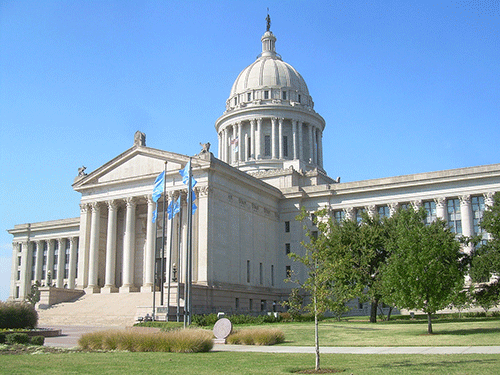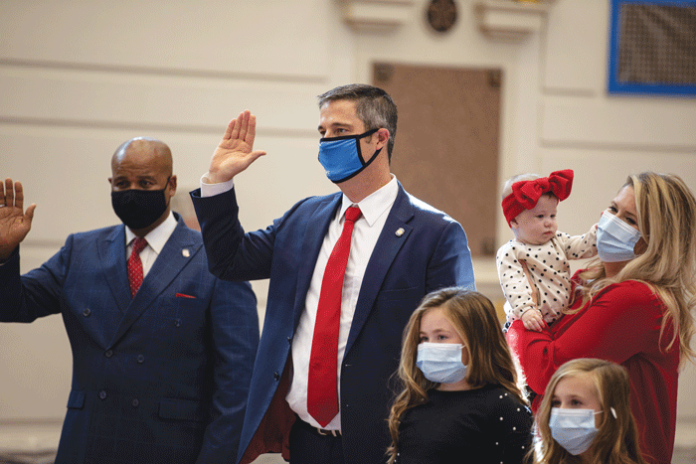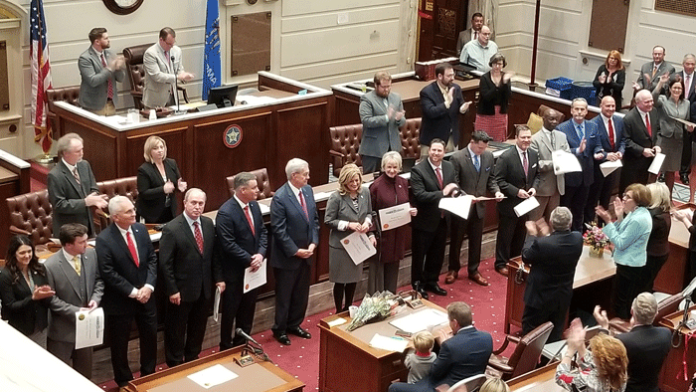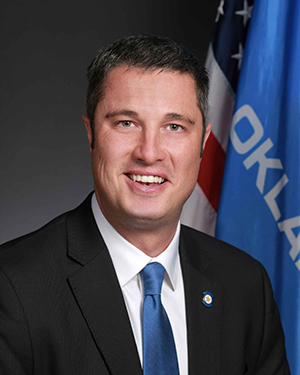Work is steadily ramping up again as interim studies are getting underway in preparation for the next legislative session. These are all public meetings and can be watched live on the Senate website.
I’ve been getting a lot of questions about two issues I’d like to discuss in this column.
1. The audit of the Oklahoma Department of Veteran Affairs
2. Nursing home closures around the state and in our district.
The VA audit was released at the beginning of August. The audit revealed there is a serious lack of communication throughout the agency as well as low employee morale. The communication problem became apparent when constituents were unaware of recent rule changes at the Lawton-Ft. Sill Veterans Center, until the changes had already taken place. It was even more apparent and troubling; I too was unaware of any rule or policy changes until I was informed of these changes by concerned constituents. This proved to me the findings of the audit were accurate. I feel our state agencies should always communicate any policy or rule changes clearly and effectively with the legislature especially when changes are made that have a direct impact on the citizens of our state, moreover, changes that impact those who have served and defended our country, our veterans.
Please know that I am working with the ODVA and its administration to address the issues and find solutions concerning our veteran’s centers, especially the Lawton-Ft. Sill Veteran’s Center. Our veterans deserve our respect, honor and only the best care.
The second issue I’d like to discuss is Oklahoma’s nursing home industry. Within the last few months, several of our states long-term care facilities have closed their doors due to a lack of adequate funding. It is critical and of utmost importance that we make a significant investment in our nursing home industry or face many more closures around the state. Not only will this displace hundreds of residents, but hundreds of working Oklahomans will lose their jobs. What’s even more concerning is rural Oklahoma will feel the brunt of this problem where jobs are few and places of employment are scarce.
For the last several years our state has had to deal with deficient budgets, resulting in a lack of investment that has left the state ranked as one of the worst for nursing care facility funding. We can and we must do better.
The AARP recently ranked our state’s nursing homes as some of the worst in the nation based on several factors for quality of care. The report ranks Oklahoma lowest in the country of nursing care per resident per day nationwide. In addition, our senior citizen population is growing at an alarming rate. The number of citizens 85 or older is expected to increase by 38% or 95,000 from 2015. We must do all we can to prevent the closure of nursing homes and strengthen this industry for future generations.
I’m pleased to say that the Oklahoma Health Care Authority, in collaboration with state and legislative leadership, are giving the first across-the-board reimbursement rate increases since 2009 to long-term care and other SoonerCare (Oklahoma Medicaid) providers. The increases will go into effect October 1. Long-term care facility provider rates will be increased by four percent and three percent for other certain contracted provider types or groups. The three percent will put SoonerCare physician rates at around 89 percent of the Medicare physician fee schedule. It will also impact most provider types like hospitals and pharmacies. While this is a positive step, it’s my hope we once again increase funding to our long-term care facilities to a level that accurately reflects the true cost of care for nursing home residents during the next legislative session.
It’s important to note that no new state funds, carryover or one-time funds were used for these increases. Instead, because of SB 1605, the increases will be funded through program and administrative savings and record drug rebate collections.
This is a step in the right direction for providing better care to our elderly and disabled. Like our veterans, they deserve only the highest quality of service.
At the State Senate, I can be reached by writing to Senator Chris Kidd, State Capitol, 2300 N. Lincoln Blvd. Room 411A, Oklahoma City, OK 73105, emailing me at kidd@oksenate.gov, or by calling (405) 521-5563 and speaking to my assistant Suzanne Earnest.













